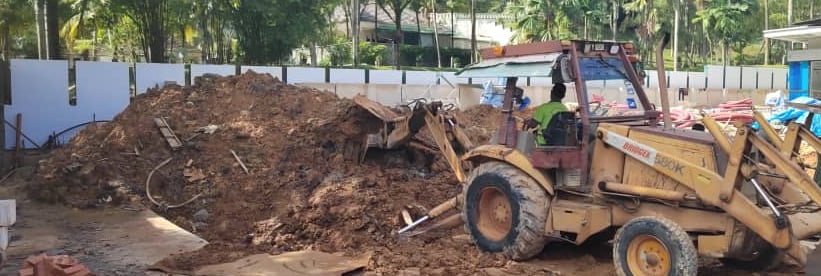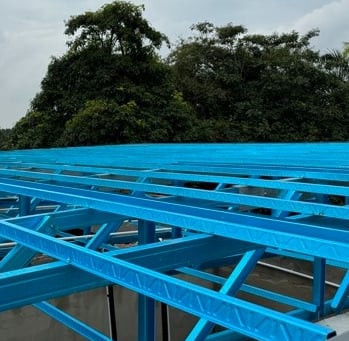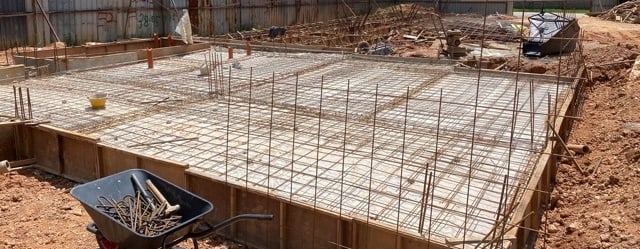How Global Trade Wars & Tariffs Affect Malaysia’s Construction
Discover how Global Trade Wars & Tariffs impact construction costs, timelines, and contractors in Malaysia. Stay informed with real-world strategies and insights.
CONSTRUCTION
@ndrew Chu
7/11/20254 min read


How the Trade War
and Malaysia's Tariff
Impacts Local
Construction & Contractors
Introduction
The global economic landscape has shifted dramatically over the past few years, largely due to rising trade tensions between major economies such as the United States and China. These disputes have triggered tariff hikes and retaliatory measures that extend far beyond their borders. For Malaysia, a nation with strong manufacturing and construction sectors, the ripple effects are increasingly being felt. From fluctuating material costs to disruptions in supply chains, the Malaysian construction industry is navigating a new set of challenges and opportunities.
In this article, we’ll dive into how these global shifts—especially the U.S.-China trade war and related tariffs—are affecting construction companies and developers in Malaysia. We’ll break down the impact on new and existing projects, analyze material costs, and explore what contractors can do to stay resilient and thrive.
Rising Material Costs in a Volatile Market
One of the most direct impacts of the trade war on Malaysia’s construction industry comes through the cost of materials. Key inputs such as steel and aluminum are deeply affected by international tariffs and market shifts.
Steel bar prices, for instance, surged globally when the trade war began but have since dropped over 20% year-on-year in Malaysia, thanks in part to increased exports from China and more stable domestic supply. Similarly, cement prices in Malaysia have remained steady for over 19 months, offering some relief to builders.
However, not all projects benefit equally. Many long-term contracts signed before the pandemic and trade war escalations are now facing up to 70% cost increases due to inflation in raw material prices. Contractors caught in these fixed-price contracts often have no choice but to delay work or renegotiate terms. Project owners are feeling the squeeze too, as unexpected price hikes can blow up budgets and timelines.
Key Takeaway: Even if prices appear stable in the short term, contractors must account for long-term price volatility when bidding and planning projects.
Supply Chain Disruptions and Project Delays
Another significant challenge tied to trade wars and tariffs is the disruption of global supply chains. Malaysian construction projects—especially large infrastructure or data center developments—often depend on imported equipment and specialty materials.
When tariffs are imposed or global routes are affected by political tension, these materials may become scarce, delayed, or more expensive. This causes a chain reaction: if one shipment is delayed, the entire project timeline could be pushed back, increasing labor and financing costs.
Despite these risks, many Malaysian contractors have maintained strong order books, particularly due to sustained demand for industrial projects such as factories and data centers. These order books act as a financial buffer, allowing firms to weather temporary disruptions.
Key Takeaway: Delays aren’t just about money—they affect reputation, trust, and client satisfaction. Smart sourcing and supplier diversification are now critical.
Comparing Impacts on New vs. Ongoing Projects
Different types of projects experience trade-war impacts in unique ways. Let’s break it down:
New Projects
Developers are more cautious when launching new projects in today’s economic climate. Volatile material prices and global uncertainty make it difficult to finalize budgets. Some developers are choosing to delay launches, scale back on premium features, or phase their projects more conservatively.
Existing Projects
Projects already underway—especially those under fixed-price agreements—are highly vulnerable. Contractors may face budget overruns due to rising material costs, and supply chain disruptions could halt progress. In many cases, renegotiation of contract terms or claims for variation orders becomes necessary.
Key Takeaway: Whether starting fresh or mid-way through, both project types need clear strategies to mitigate cost and timeline risks.
How Malaysia's Construction Sector is Adapting
Thankfully, the Malaysian construction sector has shown notable resilience. Unlike export-reliant sectors, Malaysia’s construction industry is domestically focused. This means that it’s largely shielded from the direct effects of tariffs imposed by foreign governments.
Instead, the indirect effects—like rising input prices or delayed imports—are the bigger concern. To mitigate these, many contractors are turning to localized sourcing. Alternative suppliers from ASEAN countries, Japan, or Korea are now preferred to avoid tariff-affected markets.
Escalation clauses are also being written into more contracts to help cushion against future price shocks. Procurement processes are becoming more agile, allowing contractors to lock in prices and avoid surprises.
Key Takeaway: Flexibility, local sourcing, and smarter contracts are the best defense against future disruptions.
Final Thoughts: Action Steps for Contractors & Developers
To summarize, here’s how you can stay ahead of the curve:
Monitor key input prices such as steel, cement, and imported equipment monthly.
Incorporate escalation clauses and flexible timelines into contracts.
Diversify your supplier base, especially away from heavily tariffed countries.
Invest in planning tools like Gantt charts and forecasting systems to stay on top of costs and delays.
Focus on local demand, as domestic projects offer more stability.
With the right strategies, Malaysia’s construction players can not only survive global trade tensions but grow stronger in the face of them.
Market Outlook for 2025: Risks and Opportunities
Despite global uncertainty, Malaysia’s construction sector is holding strong. According to recent reports, the value of construction work in Malaysia rose over 20% in 2024 and is projected to grow by another 12% in 2025.
There’s continued demand for industrial developments, particularly in logistics, manufacturing, and data centers. However, the sector isn’t entirely risk-free. If trade tensions escalate or global demand slows, project pipelines may tighten, especially for export-reliant clients.
Energy tariffs and inflation in imported machinery remain points of concern for contractors and developers. Firms need to stay agile and invest in forecasting tools and partnerships to remain competitive.
Key Takeaway: The future looks positive—but only for firms that adapt to new risks with proactive planning.
Looking for a reliable construction partner that understands how to navigate complex markets?
📞 Contact Shockwave Builders today to discuss your next project.


Construction workers handling steel bars at a Malaysian Factory Construction Site.






Email: info@shockwavebuilders.com
© Copyright Shockwave Builders Sdn Bhd Malaysia 2013 - 2025. All rights reserved.
Shockwave Builders Sdn Bhd is a trusted construction company in Kuala Lumpur offering design and build solutions, factory construction, bungalow projects, and interior renovation services across KL and Selangor. CIDB certified and backed by over 10 years of experience.
We Built with Passion. Delivered with Precision.
Shockwave Builders Sdn Bhd
No.14, Jalan Cumarasami, Taman Kaya off Jalan Ipoh, 51100 Kuala Lumpur, Malaysia.
Mobile: +6012-389 9128 (Andrew)
+6016-635 1160 (KK Yeap)
Office: +603-6179 3028
Related Company
Shockwave Sdn Bhd our Event Management & Exhibition Company


